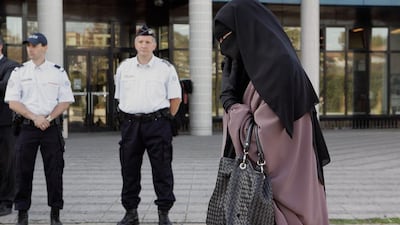Women who wear Niqabs will be forced by law to uncover their faces while doing a number of event day errands in Quebec.
Anyone wearing a Niqab is not allowed have their face covered while receiving provincial and municipal government services. This includes using public transport, meeting with their children’s teachers or using a public library.
The presence of religious minorities in Quebec has long been a topic of contention in the Canadian province.
Quebec’s National Assembly passed the bill - titled “An act to foster adherence to State religious neutrality” - despite some opposition from those who argued the legislation does not go far enough in restricting the wearing of religious symbols.
Justice Minister Stéphanie Vallée has said the bill is not aimed at any religious group.
“Having your face uncovered is a legitimate question of communication, identification and security,” she said following the adoption of the bill.
The ban will come into force as soon as it receives assent from the lieutenant-governor which should be a matter of days.
The removal of the niqab will not be enough just at the point of gaining access to services but will have to be removed throughout the time the person uses the services.
Nicole Filion, coordinator of the Ligue des droits et libertés, a human-rights defence group, warned that the law will “have a discriminatory effect on religious groups who are targeted, in particular women.”
Research estimates that fewer than 100 Quebec women wear the garment.
France, Belgium, the Netherlands, Bulgaria and the German state of Bavaria have all imposed some restrictions on the wearing of full-face veils in public places.

